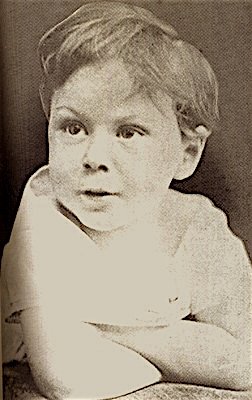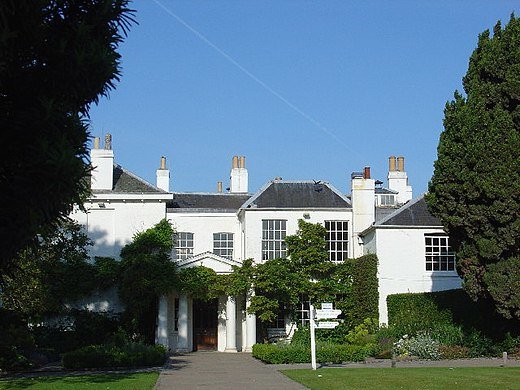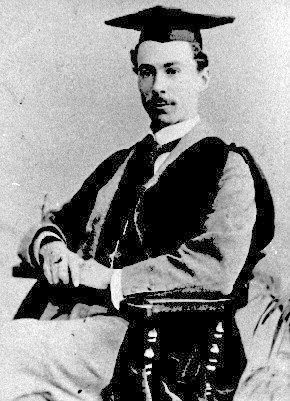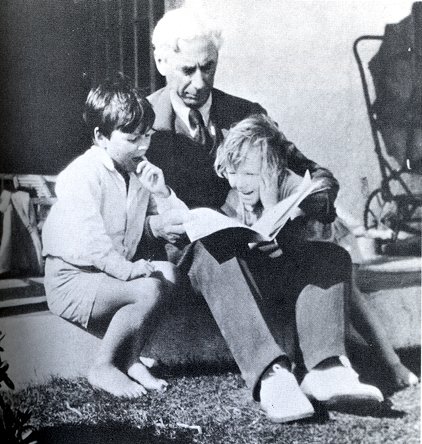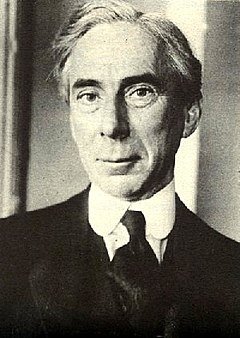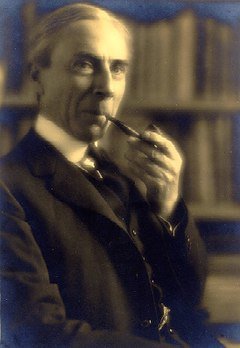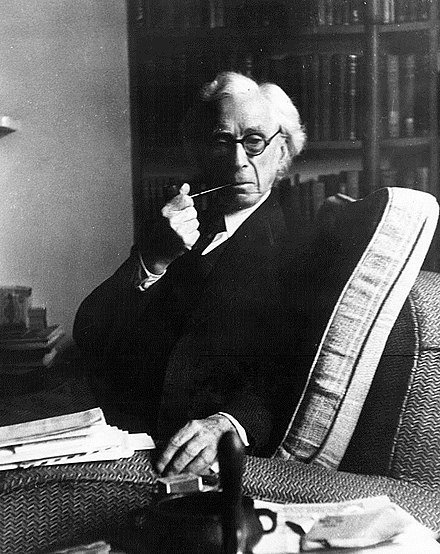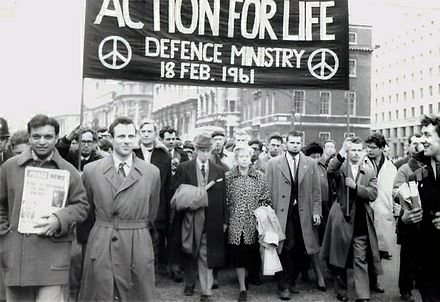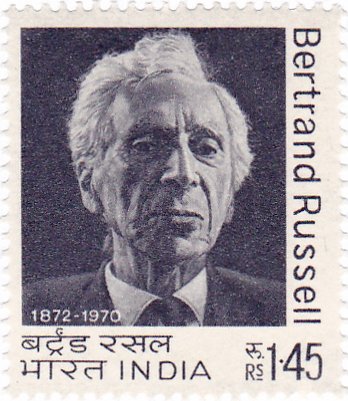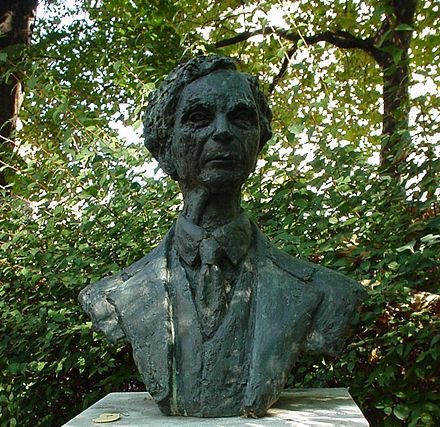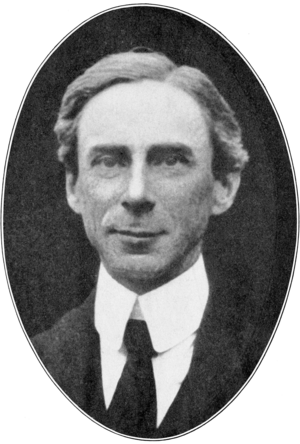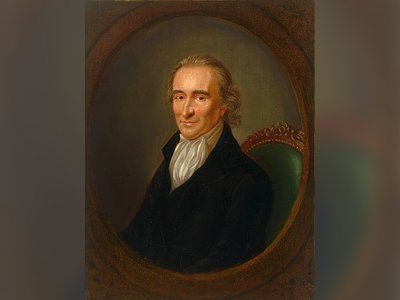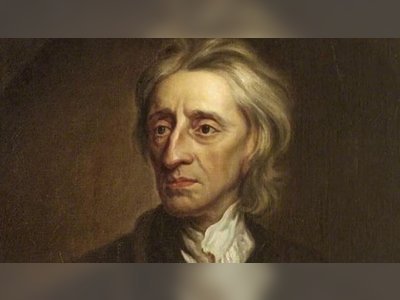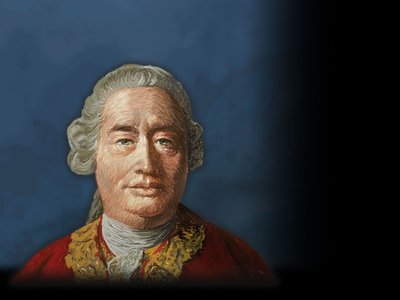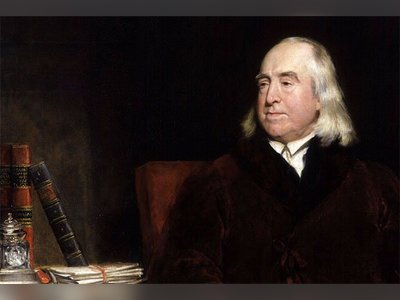British Heritage
Remember, Cherish, Learn.
beta
Bertrand Russell - The Peaceful Polymath
Contribution to British Heritage.
Bertrand Russell, the 3rd Earl Russell (1872–1970), stands as a prominent figure in British heritage due to his vast and influential contributions to various fields, including mathematics, logic, philosophy, social criticism, and political activism. As a British polymath, Russell's legacy not only spans across academia but also encompasses his role as a public intellectual, historian, and Nobel laureate. Through his prolific writings and advocacy for pacifism, nuclear disarmament, and humanitarian ideals, Russell left an indelible mark on British society and the global community.
Bertrand Arthur William Russell was born on May 18, 1872, in Ravenscroft, Trellech, Monmouthshire, United Kingdom, into an influential and liberal family of the British aristocracy. His upbringing in a family that valued radical ideas and progressive values laid the foundation for his later intellectual pursuits. Russell's paternal grandfather, Earl Russell, had previously served as Prime Minister, further cementing the family's prominent position in British politics and society.
During his adolescence, Russell's keen interests in nature, books, and mathematics provided solace amidst personal challenges, including the loss of family members. He pursued his education at Trinity College, Cambridge, where he excelled in mathematics and philosophy. His remarkable academic achievements led to a close association with renowned philosophers and logicians such as G. E. Moore, Ludwig Wittgenstein, and Alfred North Whitehead.
Russell's groundbreaking work in logic and the foundations of mathematics, including his collaboration with Whitehead on the seminal Principia Mathematica, solidified his place as one of the founders of analytic philosophy. His influential article "On Denoting" is considered a paradigm of philosophy, shaping the study of language and epistemology for years to come.
Russell's principled stance on pacifism and opposition to war became a defining aspect of his legacy. During World War I, he was imprisoned for his pacifist beliefs, illustrating his commitment to his convictions. Later, during World War II, Russell's views evolved, and he recognized the necessity of confronting Nazi Germany as the "lesser of two evils." Nevertheless, he remained steadfast in his criticism of totalitarianism, including Stalinist regimes, and opposed the United States' involvement in the Vietnam War.
Throughout his life, Russell championed humanitarian ideals and freedom of thought. His tireless efforts towards promoting peace and nuclear disarmament earned him the Nobel Prize in Literature in 1950, recognizing his significant writings advocating for a better and more just world.
Russell's dedication to education extended beyond his scholarly pursuits. Together with his second wife, Dora Black, he founded the experimental Beacon Hill School in 1927, aiming to revolutionize early childhood education. Russell believed in progressive education, which encouraged individual initiative and critical thinking in children.
Bertrand Russell's legacy as a Peaceful Polymath is one of immense intellectual influence, social advocacy, and humanitarian ideals. His contributions to British heritage and the global community continue to resonate today. Russell's commitment to logic, philosophy, and social justice has left an enduring mark on academia and society, making him a pivotal figure in the intellectual and moral fabric of British history.
Early Life and Background:
Bertrand Arthur William Russell was born on May 18, 1872, in Ravenscroft, Trellech, Monmouthshire, United Kingdom, into an influential and liberal family of the British aristocracy. His upbringing in a family that valued radical ideas and progressive values laid the foundation for his later intellectual pursuits. Russell's paternal grandfather, Earl Russell, had previously served as Prime Minister, further cementing the family's prominent position in British politics and society.
Educational Journey and Scholarly Achievements:
During his adolescence, Russell's keen interests in nature, books, and mathematics provided solace amidst personal challenges, including the loss of family members. He pursued his education at Trinity College, Cambridge, where he excelled in mathematics and philosophy. His remarkable academic achievements led to a close association with renowned philosophers and logicians such as G. E. Moore, Ludwig Wittgenstein, and Alfred North Whitehead.
Russell's groundbreaking work in logic and the foundations of mathematics, including his collaboration with Whitehead on the seminal Principia Mathematica, solidified his place as one of the founders of analytic philosophy. His influential article "On Denoting" is considered a paradigm of philosophy, shaping the study of language and epistemology for years to come.
Pacifism and Political Activism:
Russell's principled stance on pacifism and opposition to war became a defining aspect of his legacy. During World War I, he was imprisoned for his pacifist beliefs, illustrating his commitment to his convictions. Later, during World War II, Russell's views evolved, and he recognized the necessity of confronting Nazi Germany as the "lesser of two evils." Nevertheless, he remained steadfast in his criticism of totalitarianism, including Stalinist regimes, and opposed the United States' involvement in the Vietnam War.
Humanitarian Ideals and Nobel Prize:
Throughout his life, Russell championed humanitarian ideals and freedom of thought. His tireless efforts towards promoting peace and nuclear disarmament earned him the Nobel Prize in Literature in 1950, recognizing his significant writings advocating for a better and more just world.
Contribution to Education:
Russell's dedication to education extended beyond his scholarly pursuits. Together with his second wife, Dora Black, he founded the experimental Beacon Hill School in 1927, aiming to revolutionize early childhood education. Russell believed in progressive education, which encouraged individual initiative and critical thinking in children.
Conclusion:
Bertrand Russell's legacy as a Peaceful Polymath is one of immense intellectual influence, social advocacy, and humanitarian ideals. His contributions to British heritage and the global community continue to resonate today. Russell's commitment to logic, philosophy, and social justice has left an enduring mark on academia and society, making him a pivotal figure in the intellectual and moral fabric of British history.
- Bertrand Russellen.wikipedia.org


